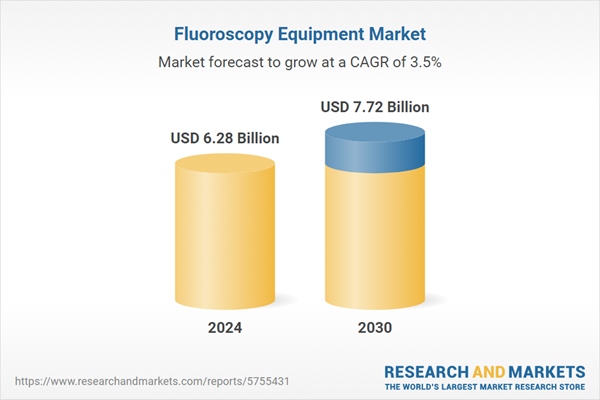Speak directly to the analyst to clarify any post sales queries you may have.
10% Free customizationThis report comes with 10% free customization, enabling you to add data that meets your specific business needs.
The market is benefiting from technological innovations that enhance workflow, imaging clarity, and system integration. Developed countries are driving adoption of high-performance systems, while emerging markets contribute to volume growth. Manufacturers focusing on scalable, user-friendly, and cost-efficient systems are better positioned to meet evolving healthcare demands globally. Compact designs, modular components, and AI-assisted functionalities are becoming critical differentiators in this competitive and evolving sector.
Key Market Drivers
Growing Burden of Chronic Diseases
A key factor accelerating market growth is the rising prevalence of chronic diseases and the expanding aging population globally. Chronic conditions - such as cardiovascular disorders, gastrointestinal diseases, cancer, and musculoskeletal ailments - are leading contributors to global mortality and healthcare utilization. Cardiovascular diseases alone are responsible for approximately 17.9 million deaths annually. Managing these diseases frequently requires imaging procedures for diagnosis, treatment planning, and follow-up.Fluoroscopy plays a central role in real-time guidance for interventions like cardiac catheterizations, spinal procedures, and gastrointestinal evaluations. As healthcare systems increasingly emphasize minimally invasive procedures for faster recovery and reduced hospital stays, fluoroscopy equipment is becoming integral to both inpatient and outpatient care. The continued rise in chronic disease cases has led to increased procedural volumes, further fueling demand for advanced fluoroscopic imaging solutions.
Key Market Challenges
High Capital Investment and Maintenance Costs
A significant challenge to wider adoption of fluoroscopy equipment is the high cost associated with initial system procurement and long-term operation. The acquisition of advanced or hybrid systems often requires infrastructure upgrades, including radiation shielding, IT integration, and installation customization - all of which drive up total capital expenditure.Ongoing costs for service contracts, technical maintenance, and system updates also contribute to a substantial total cost of ownership. These financial demands can deter adoption, especially in smaller hospitals, rural care centers, and facilities in emerging economies. In price-sensitive markets, healthcare providers may opt for more affordable imaging alternatives such as ultrasound or conventional radiography, particularly for routine diagnostic needs. This financial barrier limits penetration in mid-tier facilities and hampers adoption in regions with constrained healthcare budgets.
Key Market Trends
Integration of Hybrid Imaging Systems
An emerging trend reshaping the fluoroscopy equipment market is the adoption of hybrid radiography-fluoroscopy (RF) systems. These dual-purpose platforms allow facilities to perform both static imaging and dynamic real-time procedures using a single device, improving equipment utilization and streamlining workflow. Hybrid systems are particularly attractive to providers seeking to maximize operational efficiency while managing space and budget constraints.Their versatility supports a range of clinical applications - from orthopedic assessments to gastrointestinal diagnostics and cardiovascular interventions - making them well-suited for high-throughput settings. The demand for hybrid systems aligns with the industry’s broader shift toward value-based care, where efficiency, versatility, and performance are critical decision-making factors. As more facilities prioritize multipurpose equipment that enhances productivity, manufacturers are responding with compact, application-diverse systems that support a range of procedural needs within a single integrated setup.
Key Market Players
- Siemens Healthineers AG
- GE Healthcare
- Koninklijke Philips N.V.
- Canon Medical Systems Corporation
- Medtronic Plc.
- Hologic, Inc.
- Shimadzu Corporation
- Hitachi, Ltd.
- Carestream Health, Inc.
- Allengers Medical Systems Limited
Report Scope:
In this report, the Global Fluoroscopy Equipment Market has been segmented into the following categories, in addition to the industry trends which have also been detailed below:Fluoroscopy Equipment Market, By Type:
- Fixed C-arms
- Fluoroscopy Systems
- Remote Controlled Systems
- Patient-Side Controlled Systems
- Others
Fluoroscopy Equipment Market, By Application:
- Pharmaceuticals
- Nutraceuticals
- Herbal Based Industries
- Others
Fluoroscopy Equipment Market, By End User:
- Hospitals & Clinics
- Diagnostic Imaging Centers
- Others
Fluoroscopy Equipment Market, By Region:
- North America
- United States
- Canada
- Mexico
- Europe
- France
- United Kingdom
- Italy
- Germany
- Spain
- Asia-Pacific
- China
- India
- Japan
- Australia
- South Korea
- South America
- Brazil
- Argentina
- Colombia
- Middle East & Africa
- South Africa
- Saudi Arabia
- UAE
Competitive Landscape
Company Profiles: Detailed analysis of the major companies present in the Global Fluoroscopy Equipment Market.Available Customizations:
With the given market data, the publisher offers customizations according to a company's specific needs. The following customization options are available for the report.Company Information
- Detailed analysis and profiling of additional market players (up to five).
This product will be delivered within 1-3 business days.
Table of Contents
Companies Mentioned
- Siemens Healthineers AG
- GE Healthcare
- Koninklijke Philips N.V.
- Canon Medical Systems Corporation
- Medtronic Plc.
- Hologic, Inc.
- Shimadzu Corporation
- Hitachi, Ltd.
- Carestream Health, Inc.
- Allengers Medical Systems Limited
Table Information
| Report Attribute | Details |
|---|---|
| No. of Pages | 180 |
| Published | June 2025 |
| Forecast Period | 2024 - 2030 |
| Estimated Market Value ( USD | $ 6.28 Billion |
| Forecasted Market Value ( USD | $ 7.72 Billion |
| Compound Annual Growth Rate | 3.4% |
| Regions Covered | Global |
| No. of Companies Mentioned | 10 |









